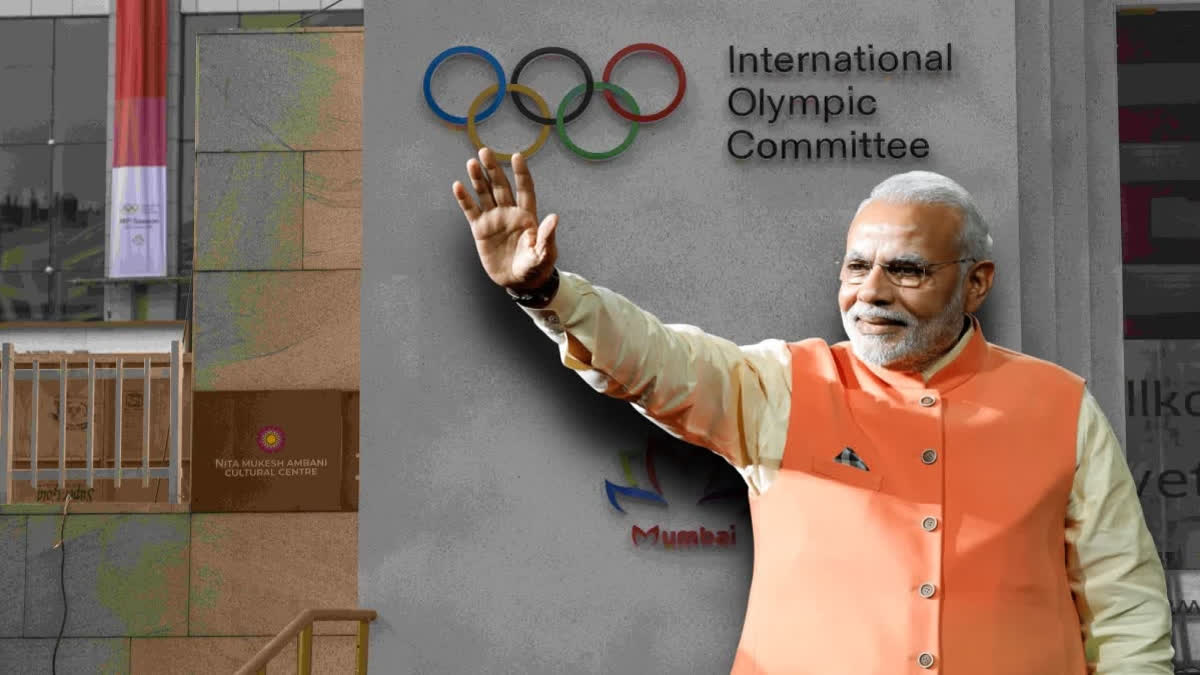Even as India plans to secure the honour of hosting the 2036 Olympics, a proactive strategy must be implemented immediately to ensure the country's presence among the top victors in these global competitions. Every four years, the Olympics captivate billions of fervent fans and astute analysts, delivering a breathtaking spectacle of athletic prowess and global unity. It embodies the profound principle of 'Vasudhaiva Kutumbakam' (the world is one family). Prime Minister Modi, his vision resonating with the dreams of nearly 140 crore Indians, expressed an unwavering commitment to bring the prestigious Olympic Games to India. This proclamation was made during the International Olympic Committee (IOC) summit held in the vibrant city of Mumbai, where he pledged unwavering dedication to secure the honour of hosting the 2036 Olympics.
As the world eagerly anticipates the forthcoming Olympic Games in Paris next year and the World Games in Los Angeles in 2028, the exciting announcement came that the city of Brisbane, Australia, will be the proud host of the 2032 Olympic Games. In December, Union Sports Minister Anurag Thakur revealed India's intent to pursue hosting rights for the Olympics, specifically in the city of Ahmedabad. It is important to note that India faces formidable competition from countries like Indonesia, Germany, and Qatar, all vying for the esteemed opportunity to organize this extraordinary sporting event. Organizing the Olympics is a monumental endeavour. It extends beyond the substantial financial commitment, encompassing extensive infrastructure development, improved urban amenities, enhanced power and water supply systems, efficient waste management, and impeccable sanitation standards.
These aspects are indispensable in creating a hospitable and efficient environment for the thousands of athletes from over 200 nations and countless visitors. Reflecting upon the colossal expenditure incurred during the recent Tokyo Olympics, initially estimated at $700 crore (approximately Rs. 58,000 crore), which ultimately doubled, it becomes evident that financial prudence and transparency are paramount. Lessons must be gleaned from past experiences, such as the regrettable episode of corruption that marred the 2010 Commonwealth Games in New Delhi.
Upholding international hospitality standards is commendable, but it is equally crucial to establish and uphold benchmarks for excellence in sports and medal pursuit. The Indian delegation, comprising 125 accomplished athletes, ventured to Tokyo in 2021, and returned home with seven medals, among them a coveted gold and two silvers. This commendable achievement secured India's position at 48th in the overall rankings. However, as the United States and China continue to dominate as the first and second-ranking nations and Japan, the gracious host, clinched third place with an impressive haul of 27 gold, 14 silver, and 17 bronze medals, the magnitude of India's Olympic ambition becomes strikingly clear.
With a population ten times that of Japan, the hope is for the Indian contingent to achieve a double-digit medal count at the 2024 Paris Olympics. While India asserts its supremacy in the South Asian Games, its Olympic performances have left much to be desired. The Olympics, the pinnacle of global sporting events, demand excellence beyond being lauded merely as a host nation. The tricolour should soar proudly, establishing India as a sporting powerhouse, particularly on the Olympic stage.
To achieve this, it is imperative to establish a robust foundation for athlete selection and comprehensive training across all sporting disciplines. Presently, a cloud of controversy hovers over the Indian Olympic Association (IOA), jeopardizing the nation's sporting prestige. Recent criticism from the International Olympic Committee (IOC), specifically regarding the IOA's failure to appoint a full-time CEO, has exacerbated the divide between these two vital organizations. Looking ahead, the election of a new IOC president is slated for 2025, and the tantalizing prospect of hosting the 2036 Olympics may materialize within the next few years. Regardless of India's hosting role, a proactive strategy must be implemented immediately to ensure the country's presence among the top victors in these global competitions.
This strategy encompasses sharpening plans for sports development from elementary schools to specialized sports universities, addressing shortages in sports instructors, establishing top-notch sports facilities in district centres nationwide, recruiting world-class trainers, identifying untapped talent with innate potential, and providing them with comprehensive systemic support. Moreover, there is an urgent need for the government to focus on post-Olympic utilization of stadiums to prevent them from transforming into burdensome white elephants in the national exchequer.
(First published as Eenadu editorial)



